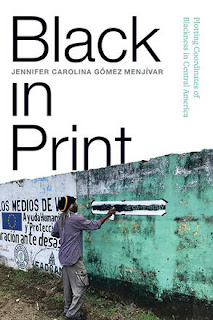Abolition Time: Grammars of Law, Poetics of Justice
By Jess A. Goldberg
University of Minnesota Press, 2024
ISBN: 9781517917890
https://www.upress.umn.edu/9781517917890/abolition-time/
Abolition Time is an invitation to reenvision abolitionist justice through literary studies. Placing critical race theory, queer theory, critical prison studies, and antiprison activism in conversation with an archive of Black Atlantic literatures of slavery, Jess A. Goldberg reveals how literary studies can help undo carceral epistemologies embedded in language and poetics.
BOOK NEWS is an online-only feature announcing new publications in modernist and contemporary literary studies. These announcements do NOT constitute an endorsement by the Journal of Modern Literature.
Goldberg examines poetry, drama, and novels from the nineteenth century through the twenty-first—such as William Wells Brown’s The Escape, Angelina Weld Grimké’s Rachel, Toni Morrison’s A Mercy, and Claudia Rankine’s Citizen—to consider literature and literary scholarship’s roles in shaping societal paradigms. Focusing on how Black Atlantic literature disrupts the grammar of law and order, they show how these texts propose nonlinear theories of time that imagine a queer relationality characterized by care rather than inheritance, property, or biology.
Abolition Time offers a framework for thinking critically about what is meant by the term justice in the broadest and deepest sense, using close reading to inform the question of abolishing prisons or the police and to think seriously about the most fundamental questions at the heart of the abolitionist movement.
"Through close reading, Jess A. Goldberg shows us that ‘justice is not an event’ and that to bring into being a different set of relations, imagining and building must take place at the same time. Clearly and compellingly argued and written, Abolition Time arrives right on time. This book is utterly necessary." —Christina Sharpe, author of Ordinary Notes
"In Abolition Time, Jess A. Goldberg develops an abolitionist reading practice through which readers can find the seeds of collective liberation immanent in creative intellectual work. By emphasizing reading as constructive and imaginative work rather than passive decoding, Goldberg encourages us to reimagine what being human could mean in a world where people were truly free." —Anthony Reed, author of Soundworks: Race, Sound, and Poetry in Production
Jess A. Goldberg is assistant professor of American literature at New Mexico Highlands University. They are coeditor of Queer Fire: Liberation and Abolition, a special issue of GLQ.









.jpg)


